Senior Living
Especially in the winter months, no matter our age or where we call home, it’s easy to opt for hunkering down and avoiding contact with the outside world until the frigid temperatures and inclement weather have passed for another year. As such, this is a time when seniors are particularly susceptible to issues that stem from isolation, so it’s important to revisit and evaluate whether the current living arrangements are the most beneficial and are continuing to fulfill all of the individual’s needs. If you find that a change is in order, there are plenty of options available from in-home care and home modifications to the numerous senior living communities in the area.
In thoughtfully approaching the plans for one’s senior years, we must first recognize that as with all things in life, change is inevitable. When it comes to making decisions about health care and living arrangements, the get the best possible outcome there are certain variables that need to be taken into consideration first.
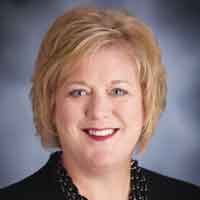
Amy Fish
Lancaster Rehabilitation Center
“When trying to balance the want for independence with the need for extra assistance, it’s most important to keep as the primary focus the provision of the most appropriate care for that particular moment in time,” advises Amy Fish, Administrator at Lancaster Rehabilitation Center (lancasterrc.com) . “Assess what additional services might be brought into the home to help maintain their utmost freedom and independence while providing the safety and security desired. Easy things like arranging for Meals on Wheels or chore services might be the minimal answer. Evaluating the ease of movement around the house is another consideration. Creating ease of access to areas such as laundry facilities, meal preparation areas, and sleeping accommodations are possible upgrades or modifications that may be made.
My advice is to start the conversation early. Knowing that the unexpected could always happen, it’s important to take the time to plan for what might be needed in the future. Adult children should take the time to engage in conversation regarding the future care needs of their parents. Often, when something unexpected happens, we’ll find that those now making decisions on behalf of elders are unaware of things like insurance policies, care directives, or how to manage their affairs in the interim of their recovery. Research in advance the many options for care. Know and understand what is important regarding their preferences for social, spiritual, and clinical care. This will help elevate some of the anxiety and stress that occurs when managing current and future need.
Moreover, don’t be afraid to ask plenty of questions in order to ensure you have all the facts. Some health care providers have limitations on Medicare, Medicaid, VA, or insurance policy participation. You always want to ensure you’re taking full advantage of the benefits or programs you qualify for. And remember to take it one step at a time. Let others help in whatever way they can. Focus on the most critical decisions first, knowing that there is plenty of help available–the Lincoln community is resource rich! Use these many experts to your advantage. Call upon trusted physicians, outreach programs, and the many health care facilities to help guide your decision making.
The overall health care continuum is becoming more and more transparent, with continual improvement in the level of communication between healthcare providers. This is a benefit to seniors and their families, as we all work together to provide the most appropriate care at the most appropriate time and place. The available options for health care services also continue to expand for both long and short term needs. Seniors deserve to take full advantage of the benefits or programs for which they may qualify. The team at Lancaster Rehabilitation Center can serve as a resource for any long-term, memory support, or short stay rehabilitation needs. We also have a certified SHIIP counselor on staff for help with any Medicare questions. Community members are welcome to contact us anytime with questions. We’re here to help!”
With all of the diversified offerings available for our growing senior population when it comes to living and care arrangements, it’s indeed all about knowing what’s available in our community and taking full advantage of those key resources. We are so lucky to be living in a time when we have a wealth of options to choose from, but this can also feel a bit intimidating for those who are actively seeking the best fit for themselves or their loved ones.
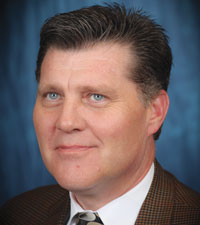
Jay Bohlken
Legacy Retirement Communities
“There are many different senior living arrangements that should be researched by each individual to determine the best fit for their needs and wants,” says Jay Bohlken, Executive Director of Legacy Estates and Director of Retirement Living for Legacy Retirement Communities (www.legacyretirement.com). “In addition to different locations and amenities, there are choices to be made regarding the level of services offered by the various senior communities. Lincoln is blessed with a wide range of quality senior living options and additional units being planned in the future. However, all these choices may seem overwhelming. It is important for seniors and their families to educate themselves on their options and to talk about their findings together.
Although it can be a difficult topic to broach, finances are also important to discuss with seniors. For the most part, Medicare does not cover expenses incurred in long-term care (including nursing homes, assisted living and independent living). Medicaid may cover some of these costs but is available only when an individual’s other assets have been exhausted. Therefore, it is important to think about how to pay for a potential stay in a senior living community. This discussion may include a conversation about the need to purchase long term care insurance.”
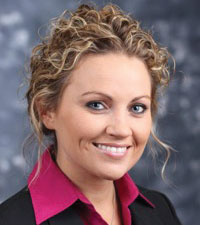
Kayla Schaf
Legacy Retirement Communities
“It is important to discuss change too,” adds Kayla Schaf, Marketing Director at Legacy Retirement Communities. “As previously mentioned, change is inevitable. We’re all familiar with that saying, and yet when faced with change, this idea brings little, if any, comfort. It would be proactive to discuss the future and learn about what is important from your loved one’s perspective and better understand what their desires are for the future. If a health situation would change, what are the top priorities? Change typically carries with it doubt, fear, uncertainty and a sense of losing control, but it can also be exciting, fulfilling and essential. By addressing this conversation prior to an event or ‘change,’ it can open up the communication lines and help both parties deal in the best way possible.”
Dana Rothfuss of Care Consultants for the Aging (careconsultants.com) also provides some items that should be thoughtfully considered and discussed with all parties involved:
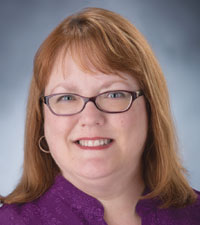
Dana Rothfuss
Care Consultants for the Aging
“Seniors and their families should be aware of any government agencies that may provide services to them. For example, the Veterans Administration offers many services and programs to veterans. Another issue to consider is financial concerns. Does the senior have a trust set up? Would long-term care insurance be of benefit? There are also legal issues that can have an impact on seniors and their families. Having Powers of Attorney for both healthcare and financial in place before a crisis happens can save a great deal of time and headaches. If a move to a senior community is planned in the near future, there are several factors to take into consideration. What level of care is needed? Can they live independently or do they require special care? Do they need a pet-friendly community? What types of activities, if any, does the community offer?
If the senior plans to remain in their home, certain modifications may need to be made. Perhaps a ramp to the front door would help. Grab bars in the bathroom could prevent a fall. Such simple things can have a huge impact on a senior’s independence. Often, extra help in the home in needed. Something to consider when looking for home health care is the level of care required. Making the right choices for themselves or for a loved one can be a daunting undertaking. Care Consultants for the Aging has made it a little easier by publishing the ElderCare Resource Handbook. New editions are published every two years, and are available for purchase or can be viewed on line for free at www.careconsultants.com.”
Bathroom modification is one of the most popular areas of focus for seniors who remain living in their homes, particularly because it can be difficult to maneuver for using the restroom or bathing and therefore, safety is always a concern.

Todd Jones
Nebraska Re-Bath
“It’s always of chief importance to us that seniors have a safe and functional bath area,” emphasizes Todd Jones, owner of Nebraska Re-Bath (www.nebraskarebath.com) . “When it comes to bath areas, the number one thing to assess is safety. For example, easy access shower bases are much safer than traditional bath tubs. Make sure the point of entry to the shower is low enough to get in safely. It’s also a good idea to have properly placed safety bars that are solid and sturdy along with easy to reach water controls with an optional handheld sprayer. Furthermore, shower doors are not always the best option for seniors as they can get in the way of entering and exiting safely. Rather, shower curtains are easier to maneuver and usually suitable for most shower setups. Finally, check to see that the floor of the shower has some sort of grip surface applied so proper footing can be maintained while using the shower.
One of the most common changes people make is to remove the bath tub and replace with a shower base which fills the same space. This allows easy access for seniors who no longer have a need for a bath tub. Walk-in bathtubs are also popular with seniors and can be installed in the same place as the bathtub. Walk-in tubs allow for comfortable seated bathing and have a door that opens and closes which makes access very easy. They also have handheld sprayers which allow for them to be used as a shower.”
He adds, “We’ve found that understanding the needs of seniors as they relate to the bath areas greatly helps in figuring out what would be most helpful. Ask your loved one if he or she has any challenges with entering or exiting the tub or shower area. Try to identify potential hazards such as rugs on the floor or missing/loose or poorly placed safety bars. Re-Bath offers a wide range of bathroom safety products to fit any budget.
In 2016, Re-Bath will be remodeling our showroom to showcase some of the new materials and safety features we have to offer for our senior customers. We welcome you to stop in and see all of the options that are currently available!”
Making the move to live with a loved one or in a senior community can also pose risks as the individual is not yet used to navigating throughout the new home.

Kathleen Horsley Personal Health Care Services Inc.
“For those who will be moving to a senior community, to live with family, or to an assisted living facility in the coming months, safety is the #1 element to keep in mind for a smooth transition,” explains Kathleen Horsley, RN, MHA, Home Health Administrator at Personal Health Care Services, LLC (personalhealthcs.com) . “Research has shown that older adults are prone to falls when moving to a new living arrangement or adjusting to new surroundings, so environmental safety is important to consider.
A nightlight can be useful in bedrooms and bathrooms so that nocturnal visits don’t become a hazard. Throw rugs can cause trips and falls and are not recommended if a person is unsteady on their feet. Lift chairs may be beneficial for someone experiencing weakness. Wide doorways and entrances are preferred when considering the use of a wheelchair or walker within the home. A wheelchair ramp may be needed for homes with a stepped entrance. In addition to assessing and planning for safety in the home, a home health nurse or physical therapist can assess and help plan for home safety with medical equipment such as oxygen machines.
Keep in mind that home health professionals can do much more than provide ‘hands on’ health-related care for patients. With some of the physical changes of altered health, psychosocial changes can occur as well and depression can set in. Home health clinicians will assess an individual’s psychosocial status and set goals with the individual to achieve a level of functioning that sustains them in their home. Assistance in coordinating community programs such as meal delivery, pharmacy delivery, and transportation options are also services provided by Home care clinicians.
If patients have complex conditions, they can need a lot of hands-on care, leaving less time for teaching. If patients are in pain, they may find it hard to take in new information. Nurses work to build confidence in their patients, and give them the skills they need to remain in the comfort of their homes. They strive to build trusting relationships with patients and family caregivers in order to provide education and insight into needed care routines using a team approach.
Teaching patients to care for themselves is an important aspect of Home Health care. Chronic diseases such as diabetes, heart and lung conditions can be a struggle for an older adult living alone. If an individual finds they are having exacerbations of these diseases by frequent trips to the doctor, or frequent trips to urgent care or to the emergency room; home health can help instruct patients in how to manage these chronic disease states in the home. While on home care service, a nurse is only a phone call away. Personal Health Care Services has a nurse available on call 24/7.”
She further advises, “One of the top things that may impact seniors and their families in 2016 is the ever-changing health care insurance options available to keep them healthy and living at home. Medicare recipients have a chance to review their coverage and modify their plan annually.
Medicare offers preventative services, health, and drug plans that can change each year. Plans can alter the cost, coverage, provider networks and pharmacy providers. If you’re in a Medicare health or prescription drug plan, it’s important to review the materials your plan sends you, like the ‘Evidence of Coverage’ (EOC) and ‘Annual Notice of Change’ (ANOC). (Source: Medicare & You 2016)
Some older adults choose plans that have a less expensive monthly premium and a higher deductible or out-of-pocket rate only to learn that the plans chosen don’t cover their health needs when health alterations occur. Home health care is covered under Medicare Part A and Part B. The Medicare Home Health benefit is a benefit that many older adults have paid for in their earlier years, qualify for and yet do not utilize.
Home health care is an important element in helping older adults to remain independent in their home. A home health care provider, such as Personal Health Care Services, can help older individuals recover from a hospitalization stay or assist with chronic disease management.
Here’s one example: ‘Following her back operation, Mom was confined to her home. Medicare covered the cost of visiting nurses who came to her home to change her surgical dressing, draw labs, monitor adjustments to her medications and provide other needed nursing care. Medicare also covered the cost of therapy Mom received from a physical therapist who came to her home three times a week.’
Medicare Part A covers medically necessary home health services such as part-time or intermittent skilled nursing care, physical therapy, speech-language pathology services, and/or services for people with a continuing need for occupational therapy. A doctor, or certain health care professionals who work with a doctor, must see you face-to-face before a doctor can certify that you need home health services. A doctor must order your care, and a Medicare-certified home health agency, such as Personal Health Care Services, must provide it. Home health services may also include medical social services, part-time or intermittent home health aide services, and medical supplies for use at home. Medicare pays for your home health services if you’re unable to easily leave home and doing so requires a considerable taxing effort or when leaving home due to an illness or injury isn’t medically advisable or isn’t possible without the aid of supportive devices, use of special transportation, or the assistance of another person.
You pay nothing for covered home health care services and 20% of the Medicare-approved amount for durable medical equipment.
Seniors living in assisted living facilities (ALF) also benefit from home health services even though they may be paying for a nurse at the facility to oversee medication administration, help with bathing and meal provisions.
As such, here’s another example from one of our clients: ‘My aunt moved to an assisted living facility (ALF) when she could no longer stay at home alone due to dementia. Shortly after the move she fell off of a small step ladder while putting things away in a closet. She went to the hospital with two fractured ribs. When she came back home to the ALF after the hospital stay she was on a pain medication that she had not been on before at home. The home health nurse worked with the doctor, the ALF staff and my aunt to manage her pain effectively with the medication while minimizing untoward side effects such as constipation, nausea and increased confusion. The home health nurse also evaluated my aunt’s breathing and instructed my aunt and me on breathing exercises she should do and use of her new oxygen to prevent pneumonia from setting in. Physical and occupational therapy also helped my aunt with safety issues in the home and worked with her to increase muscle strength and muscle movement to the injured areas.’”
Depending on specific concerns being addressed, there is a lot of diversity with respect to senior-focused services available. You may simply need someone to stop by the house periodically to check on a few things and offer the opportunity for some much-needed socialization, or to arrange transportation to doctor’s appointments or to run errands, to prepare meals or catch up on the housecleaning, all the way up to registered nurses who provide in-home medical support.
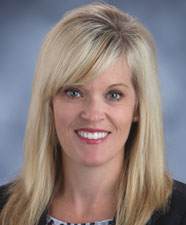
Jamie Peters, APRN
Health at Home Consultants
“When deciding what type of in-home services would most benefit an individual, it’s important to evaluate whether medical care is needed or whether the assistance would be limited to help with household chores or errands,” adds Jamie Peters, APRN of Health at Home Consultants (www.healthathomeconsultants.com) . “This will be incredibly helpful in finding the best fit for one’s specific needs. At Health at Home Consultants, our team of Nurse Practitioners are qualified to provide a broad range of health care services, including many of the same care services commonly provided by physicians, and can even serve as a patient’s regular primary care provider (PCP). This is especially advantageous for those who aren’t mobile or who don’t have family close enough to check up on them or offer regular assistance. During the winter months, it’s critical for seniors to avoid situations where their safety could be in jeopardy. Home visits keep them indoors while still having access to care and other items that they need to stay healthy and happy.”
Another benefit of utilizing home health care as a resource is that it provides respite for family members who are actively involved with the care of a senior loved one. The winter months can be hard on family caregivers too, with more concerns regarding their loved one to address while continuing to keep everything in their lives in balance.
While seniors and their families are generally vigilant about healthcare, and for good reason as it’s a major concern, there are many areas that can be difficult to understand without the help of someone who is familiar with all of the ins and outs. Working through Medicare Parts A and B, and then annually dealing with Part D, can be a pain. Then seniors have to decide if they want a Medicare Supplement and if so which one and through which insurance carrier. Compound all of that with the cost and it is overwhelming for anyone.
Nebraska Hearing Center is able to make one decision easy and that is getting your annual hearing test. The hearing evaluation is free; setting a baseline and monitoring it annually is highly recommended. With regular visits, family members will start to notice changes in their loved ones. When noticing a hearing loss, a gentle nudge in the form of a question such as “When did you last get your hearing checked?” may make all the difference in getting that person to acknowledge a potential issue.
Common signs to look for regarding hearing loss are:
*Your loved one can hear loud sounds, but can’t understand conversations.
*They overuse the word “what.”
* Their TV volume is too loud for others.
*They have trouble understanding a conversation in a noisy environment, like a restaurant.
*They have ringing in their ears.
 At Nebraska Hearing Center, hearing evaluations are complimentary. “We believe in prevention and monitoring,” states Leslie Frank MS, CCC-A, Audiologist and owner of Nebraska Hearing Center (www.nebraskahearingcenter.com) . “That is why we offer free hearing evaluations, because I believe it is that important.”
At Nebraska Hearing Center, hearing evaluations are complimentary. “We believe in prevention and monitoring,” states Leslie Frank MS, CCC-A, Audiologist and owner of Nebraska Hearing Center (www.nebraskahearingcenter.com) . “That is why we offer free hearing evaluations, because I believe it is that important.”
While living at home or in a senior community, it is important to stay social. Being able to hear and participate in conversations is a huge part of being social. “Good hearing is so important to people’s social lives,” states Leslie. “If you aren’t able to participate, it’s easy to begin to slowly withdraw without even realizing that you are or the reason behind it. Good hearing plays a major role in socialization.” For those who are looking into senior communities or already living in that type of setting, if hearing aids are worn it’s also important to pay attention to whether hearing health services are available. Nebraska Hearing Center also holds a Hearing Health Clinic monthly at five senior communities in Lincoln.
Along with the changes in Medicare and heath care plans/coverage, it’s also critical to stay in-the-know about legal matters pertaining to seniors.
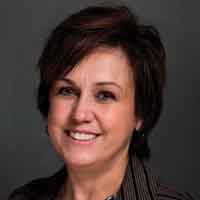
Jodi Freeman – Roper & Sons Funeral Care
“It is important to always stay abreast of changing laws and bills in legislation,” emphasizes Jodi Freeman of Roper & Sons Funeral Care (www.roperandsons.com) . “We know of a bill currently (as of January) in the Legislature that will significantly impact Medicaid and its effect on the use of life estates to protect your assets. Currently, you cannot be forced to sell your home or farm to pay for a nursing home – however, LB72 could change that. I am definitely not an expert on Medicaid or estate planning, but I strongly advise you to contact your attorney or financial planning professional to make sure that your estate plan is up to date and your assets are protected.
No matter your age or health, it is always important to have your financial and healthcare affairs in order. Name a Power of Attorney (POA) for finances and healthcare, have an asset management plan in place for finances and personal items, ensure that your loved ones know your wishes for healthcare and end of life, and pre-arrange your funeral services, including payment. There are great tools available for planning, but I always advise reviewing those plans with an attorney to ensure that they will hold up in a court should they ever be challenged. Ensure that your POAs are someone you trust implicitly to make the best decisions on your behalf, and that your loved ones know who that person is, especially if he or she is not a family member. Finally, maintain all of your documents in a secure place, but make sure loved ones know where to find them in an emergency.
I can’t stress enough the importance of having your estate, insurance, healthcare, and end of life plans in place, regardless of your age or health. Communication with loved ones, while you are still able, is very important. All too often, major illness or death occurs unexpectedly, and loved ones are left at a complete loss emotionally and financially. Even in the closest of families, emotional turmoil can cause stress and anxiety. When plans are in place, turmoil is lessened to a great extent. There are many wonderful professionals in Lincoln who can help with all aspects of planning and communication; all you need to do is ask!”
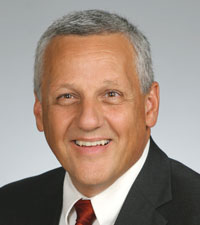
Bryan Block
Butherus Maser & Love Funeral Home
From finances and living arrangements to emergency situations, thorough planning will cover all of the bases and leave little to chance. Bryan Block of Butherus, Maser & Love Funeral Home (www.bmlfh.com) offers a few key recommendations for those who wish to be as prepared as possible:
“Year after year a huge concern for everyone is simply the economy. How will one continue a lifestyle they are accustomed to, and still fulfill their obligations for expenses that will arise? The stock market fluctuates so you can never be sure the money you planned on using for expenses down the road will actually be there when you need it. I don’t like to take big risks and I don’t want to leave expenses for my children, so I believe it is wise to pay for these expenses ahead of time, erase them off of my ‘to-do’ list, and put any thought of that obligation behind me. When people procrastinate and say they will handle these things later, I worry that situations will change and everything may not go as planned. Too often we see circumstances where families are dealing with things they never imagined they would have to be concerned with. When there are known future events and/or expenses, my advice is to take care of those obligations as soon as you are able to do so.
Whether moving into a senior living environment or remaining at home it is key to have a good system of communication in place with facility management, neighbors, and family. Having someone available that can regularly check in to assure everything is okay is important, but it is also important they know whom to call in case an emergency arises. When those emergency situations arise, it is best if you have a plan of action that includes who you want called and it is best to make sure others are aware of your wishes so that they can be followed as you intended. ‘Files of Life’ are available, which are magnetic pouches placed on refrigerators with emergency contact information. This is often the first thing emergency responders look for to give them any guidance they may need.”
He adds, “A recent article in the paper interviewed some Kiwanians over the age of 90 and some of the sage advice they gave included: ‘Secrets to a fulfilling life and an enjoyable retirement: selflessness, gratitude, reading and study, goal-setting, and continuing to volunteer for good causes.’ Isn’t it funny that life is full of irony? The more you give, the more you have.”
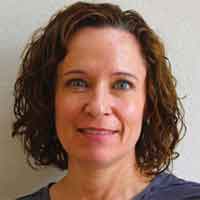
Amy Hemje – HoriSun Hospice
Amy Hemje, LCSW, Social Worker at HoriSun Hospice (www.horisunhospice.com) also offers tips on planning for the future and having all of the necessary items in place:
“As we enter a new year, many take the opportunity to reflect on the past and think about the future. There are many worthy topics that can be considered when looking ahead – one of those can include advance care planning. The International Society of Advance Care Planning and End of Life Care defines advance care planning as “a process of communication between individuals and their healthcare agents to understand, reflect on, discuss and plan for future healthcare decisions for a time when individuals are not able to make their own healthcare decisions.” Plans can be made at any time by a competent adult aged 19 or older, as accidents and illness can happen at any age. Having your wishes written down will help guide physicians and loved ones on what you want during a difficult and stressful time.
Advance directives are legal documents that allow you to plan and make your own end of life wishes in the event you are unable to communicate those wishes. A living will describes your wishes regarding your medical care treatment, goals and wishes. This can include desires about life sustaining treatment – when to use, when to withhold and when to withdraw. A power of attorney for health care appoints a person to make healthcare decisions for you if you are incapacitated and cannot make decisions for yourself. It is important to consider having someone you trust to make decisions for you and to also consider an alternative power of attorney for health care if the primary person is unable to make decisions for you.
There are several ways advance directives can be implemented. There are state specific forms available online that can be downloaded, completed and notarized. The National Hospice and Palliative Care Organization website has free information, tools and state specific advanced directives at www.caringinfo.org. Legal Aid of Nebraska has automated online Power of Attorney and Living Will forms on their website at www.legalaidofnebraska.org. Nebraska State Unit on Aging at 800-942-7830 has a booklet entitled “Surrogate Decision Making in Nebraska” with state specific advanced directives. One can also contact a private attorney, Elder Access Line if over 60 at (800) 527-7249 or Aging Partners legal clinic at 402-441-7070 if in Lincoln (income guidelines apply).
Once implemented, it is important to communicate this information and your wishes with loved ones and your health care providers. Make copies of your documents and give to your loved ones and health care providers and store originals in a safe, easily accessible place.”
When we think about our senior years, we often picture ourselves at home surrounded by our loved ones and living life to the fullest. While the first might not be realistic, the second is always possible no matter where you call home or who remains by your side. Whether it’s finding safe transportation to stay involved in your normal social activities, having someone stop by your house for support, or becoming part of a vibrant senior community, there’s more options than ever before to choose from. Embracing the tough conversations and being proactive in planning will allow you the freedom to grow old on your own terms–with less stress to bear you’ll have more happiness to share!

